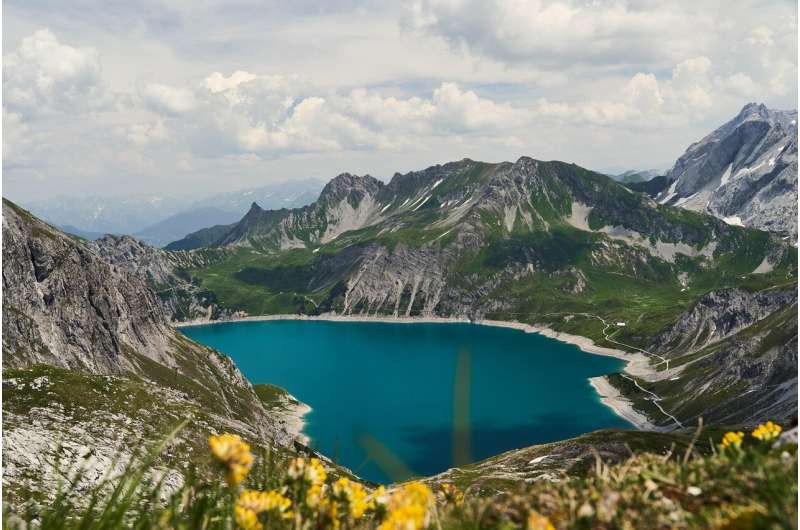This article has been reviewed according to Science X's editorial process and policies. Editors have highlighted the following attributes while ensuring the content's credibility:
fact-checked
reputable news agency
proofread
Environmental groups renew legal challenge of massive Denver Water reservoir expansion

A years-long legal battle over the expansion of one of the reservoirs holding Denver's water supply entered a new chapter this week when environmental groups asked a judge to invalidate the federal permits underlying the $464 million project.
A coalition of environmental groups filed a complaint Tuesday that argues federal agencies failed to properly consider the massive construction project's impacts on the environment in Boulder County when they approved the expansion of Gross Reservoir. They also didn't adequately weigh the risk of taking more water from the Colorado River system, the filing says.
"The largest construction project in Boulder County history would have devastating effects on the county's ecology and residents: Denver Water will clear-cut more than 500,000 trees; blast and mine 1.6 million tons of rock; release 'freezing flow' cold water into South Boulder Creek with adverse impacts on fish; permanently eliminate popular recreational destinations; and elevate reservoir mercury levels that could affect fish and human health," the coalition alleged in its filing.
The new complaint, filed in the U.S. District Court for Colorado against the U.S. Army Corps of Engineers and the U.S. Fish and Wildlife Service, is the latest salvo in a five-year fight. The environmental coalition, which seeks to stop the expansion of the reservoir, first sued in 2018. Its suit was dismissed in 2021, and months later, the groups appealed that decision.
An appeals court judge last year reversed the dismissal and said the groups could challenge the federal permitting, resulting in Tuesday's filing. The participating groups are Save the Colorado, the Environmental Group, WildEarth Guardians, Living Rivers, Waterkeeper Alliance and the Sierra Club.
Construction began in April 2022, and work is expected to take five years, according to Denver Water.
Plans call for raising the existing Gross Dam by 131 feet and widening it by 800 feet. That would nearly triple the reservoir's capacity from about 42,000 acre-feet to nearly 120,000 acre-feet. That's enough to provide water for about 800,000 people for a year. When completed, the reservoir would be the second-largest under Denver Water's control.
Denver Water authorities began the process of expanding the reservoir in 2002, citing a need for more water storage to supply a growing population and to better insulate the city's water supplies from climate change and natural disasters, such as wildfires.
The reservoir, originally completed in 1954, holds water that is pumped from a tributary of the Colorado River that's west of the Continental Divide.
The complaint by the coalition alleges federal authorities failed to consider alternatives to expanding the reservoir or to meaningfully analyze whether the project will be able to fulfill its purpose as Colorado River flows decrease.
"Although this crazy dam project is still being constructed in Boulder County, we are committed to stopping Denver Water from further draining the Colorado River," said Gary Wockner, executive director of Save the Colorado.
The coalition asked Judge Christine Arguello to vacate the federal permits because the Corps of Engineers and the Fish and Wildlife Service did not comply with the Clean Water Act, the National Environmental Policy Act and the Endangered Species Act.
Denver Water spokesman Todd Hartman on Wednesday said the utility would not comment on the new filing.
2023 MediaNews Group, Inc. Distributed by Tribune Content Agency, LLC.





















